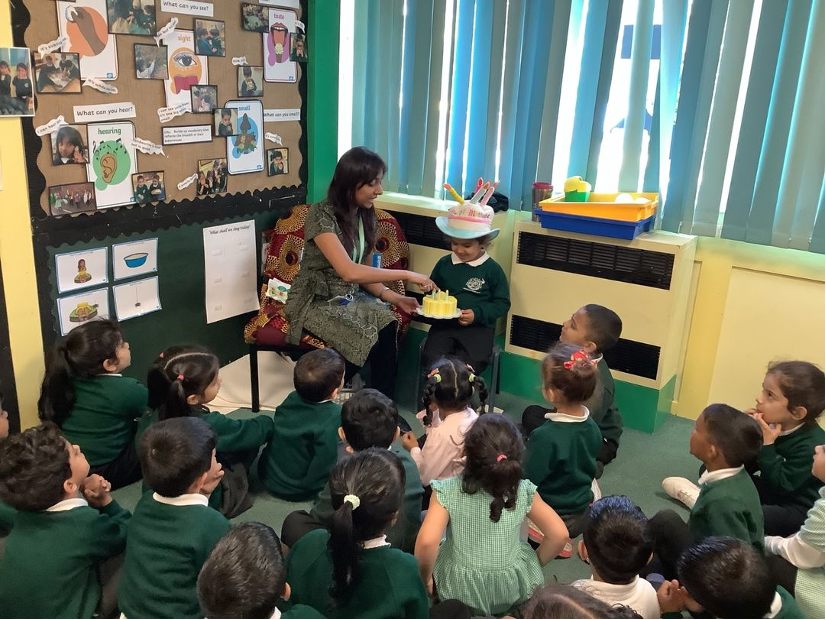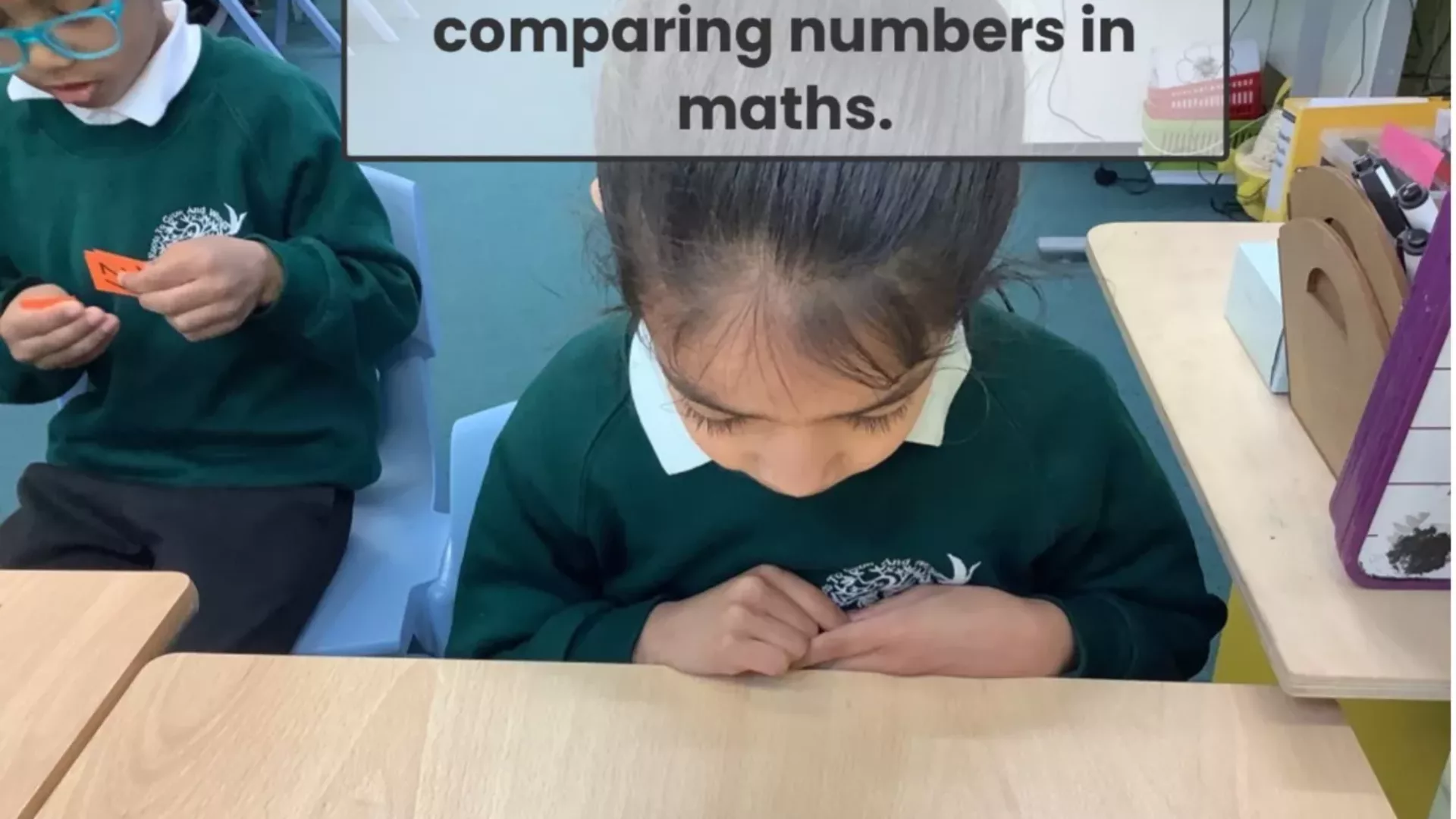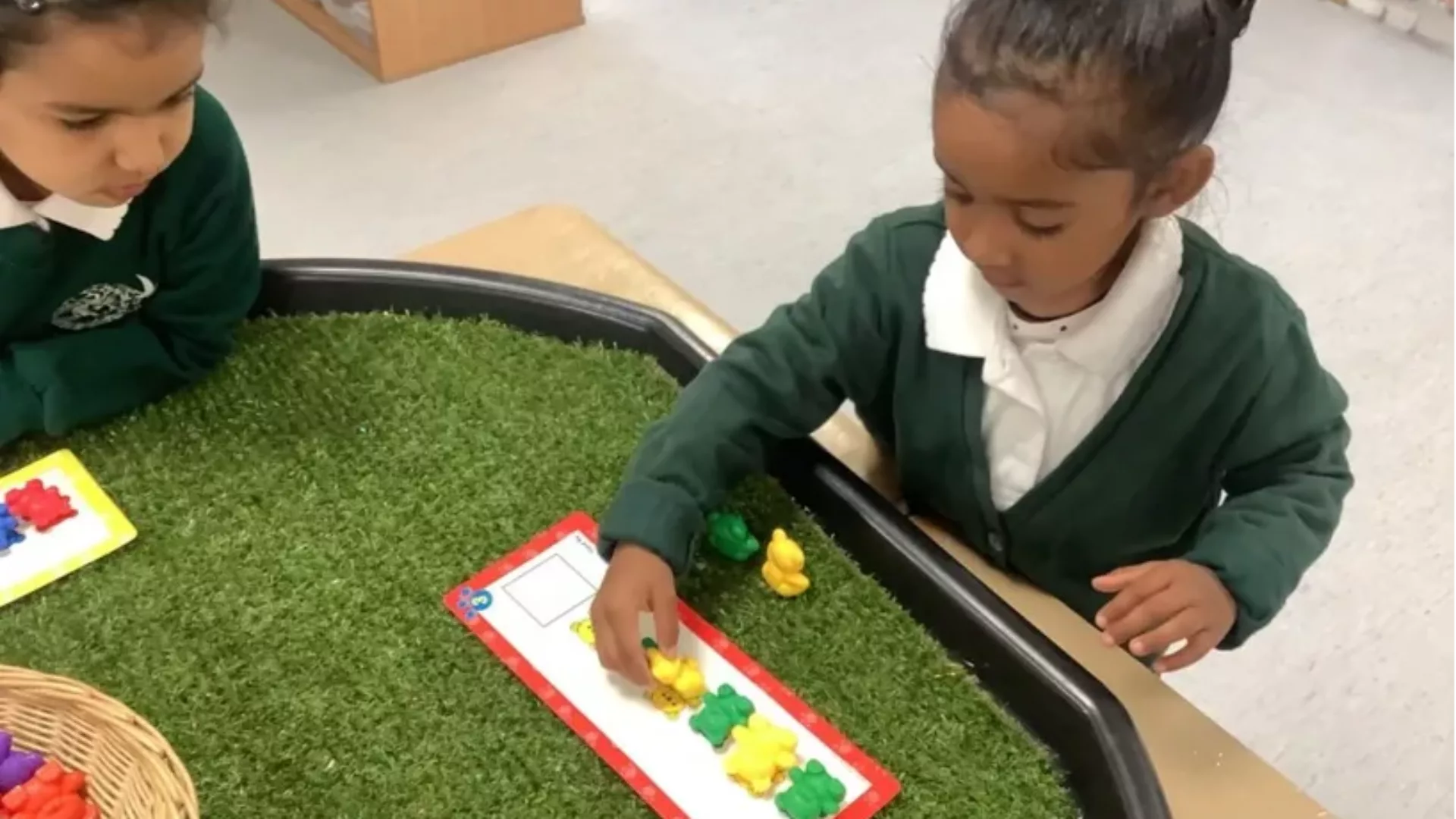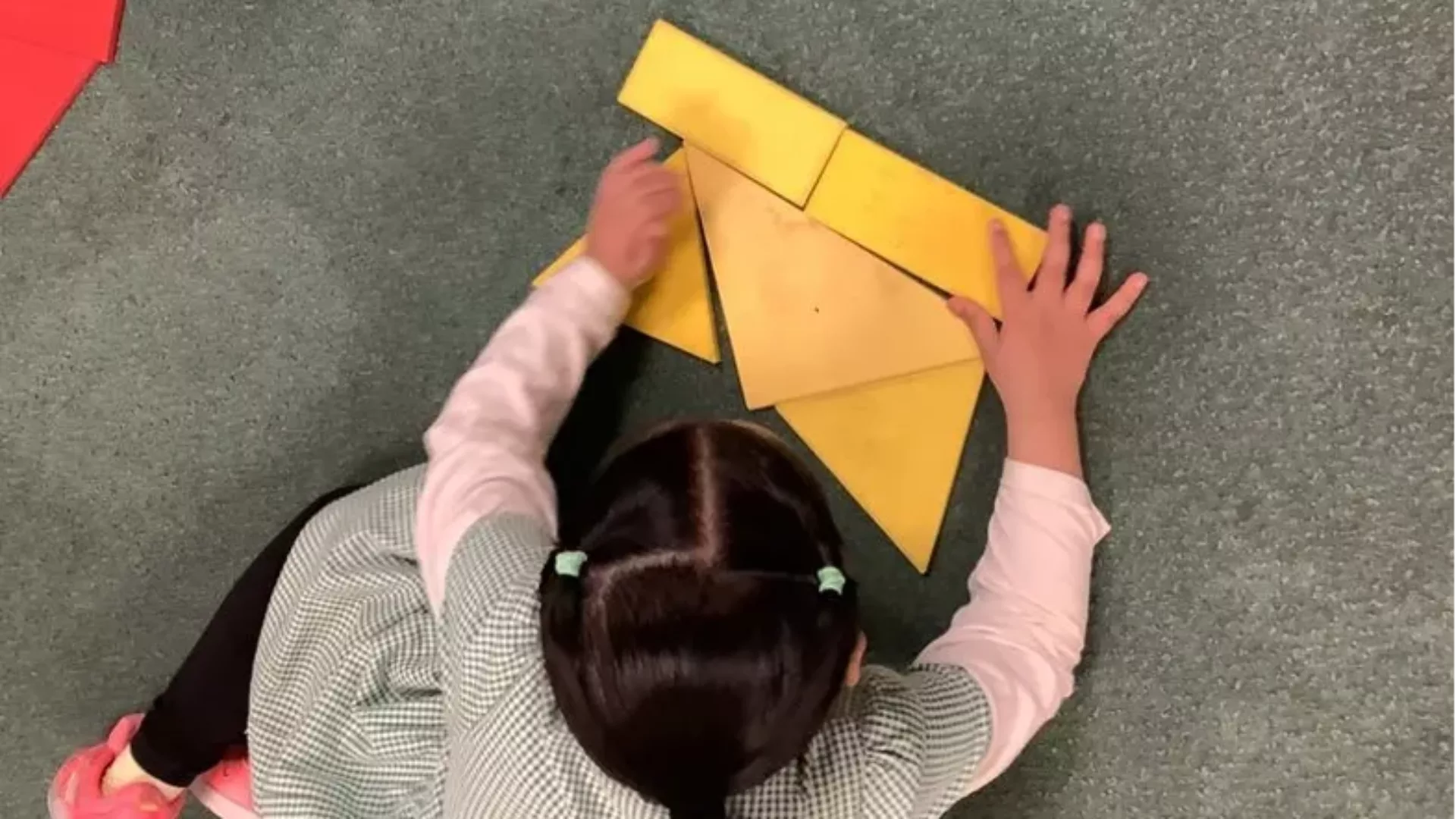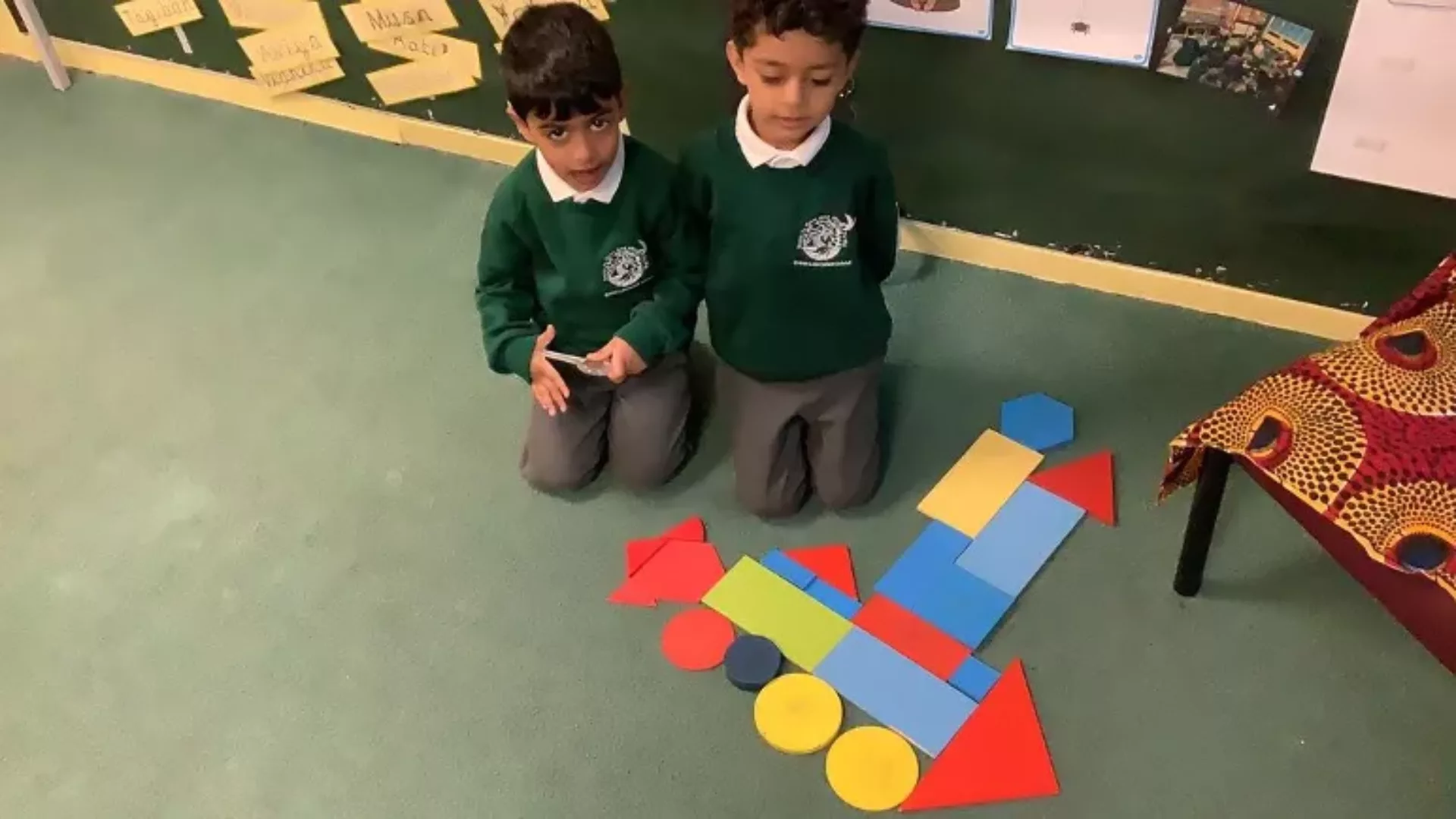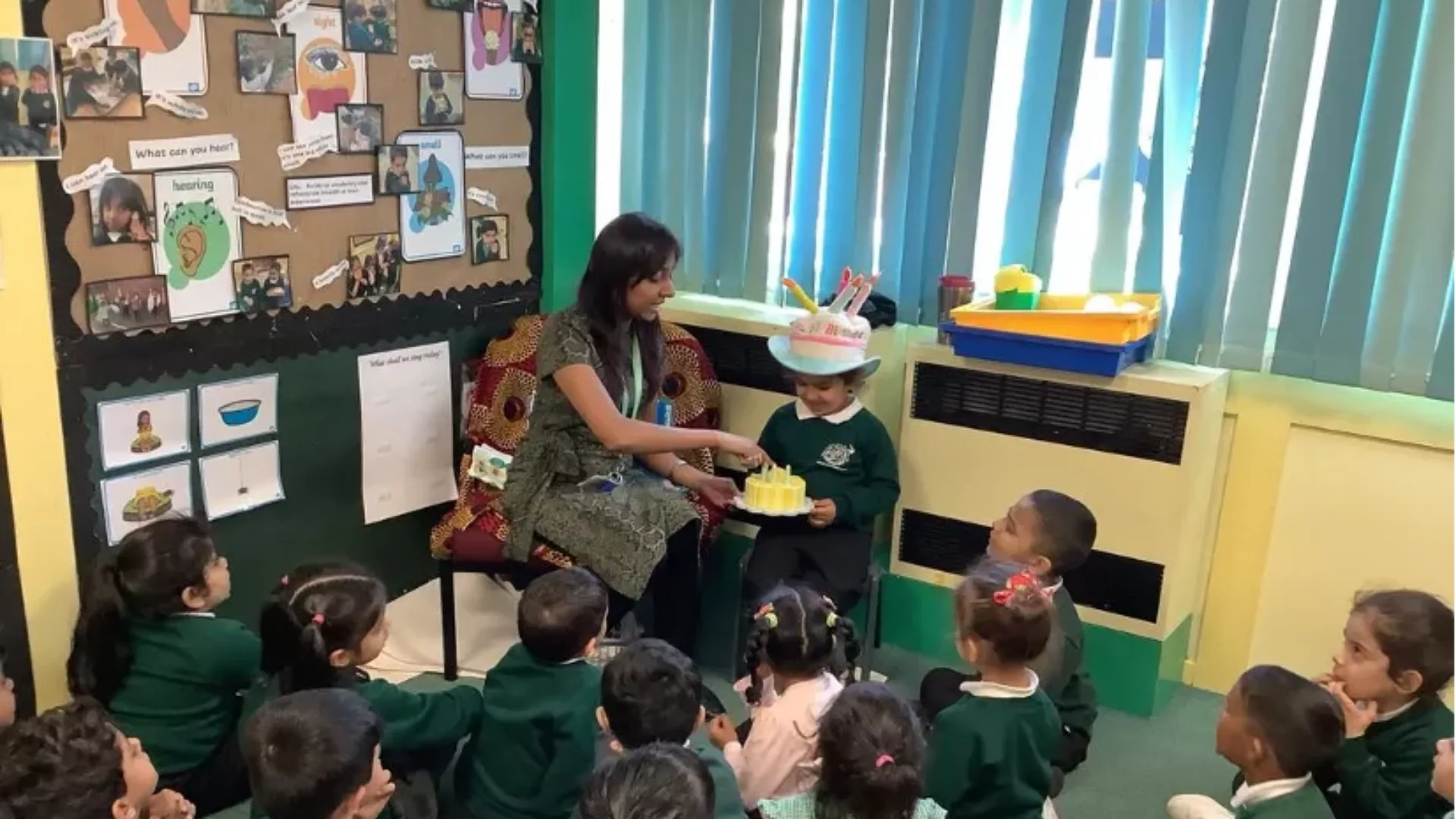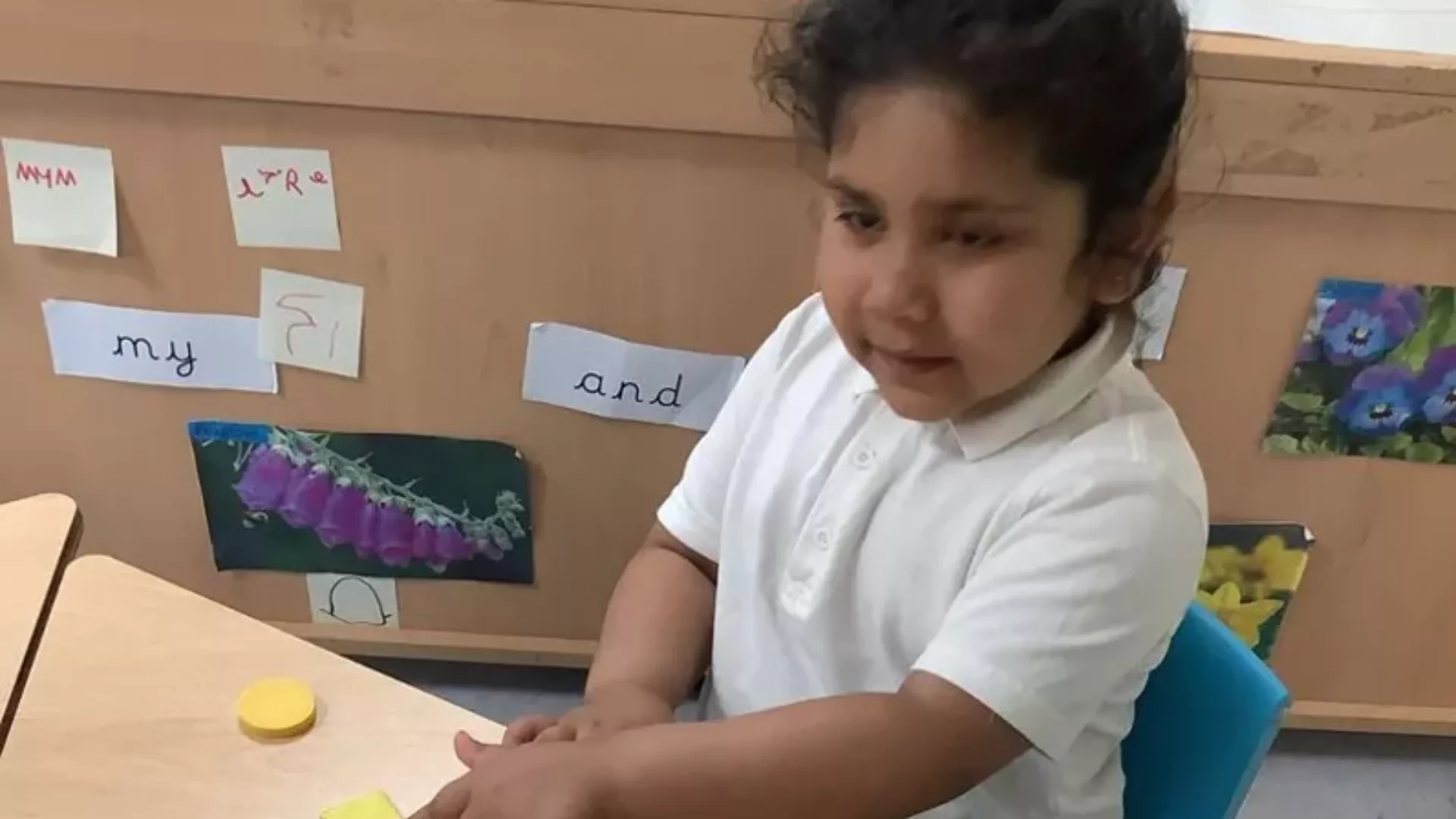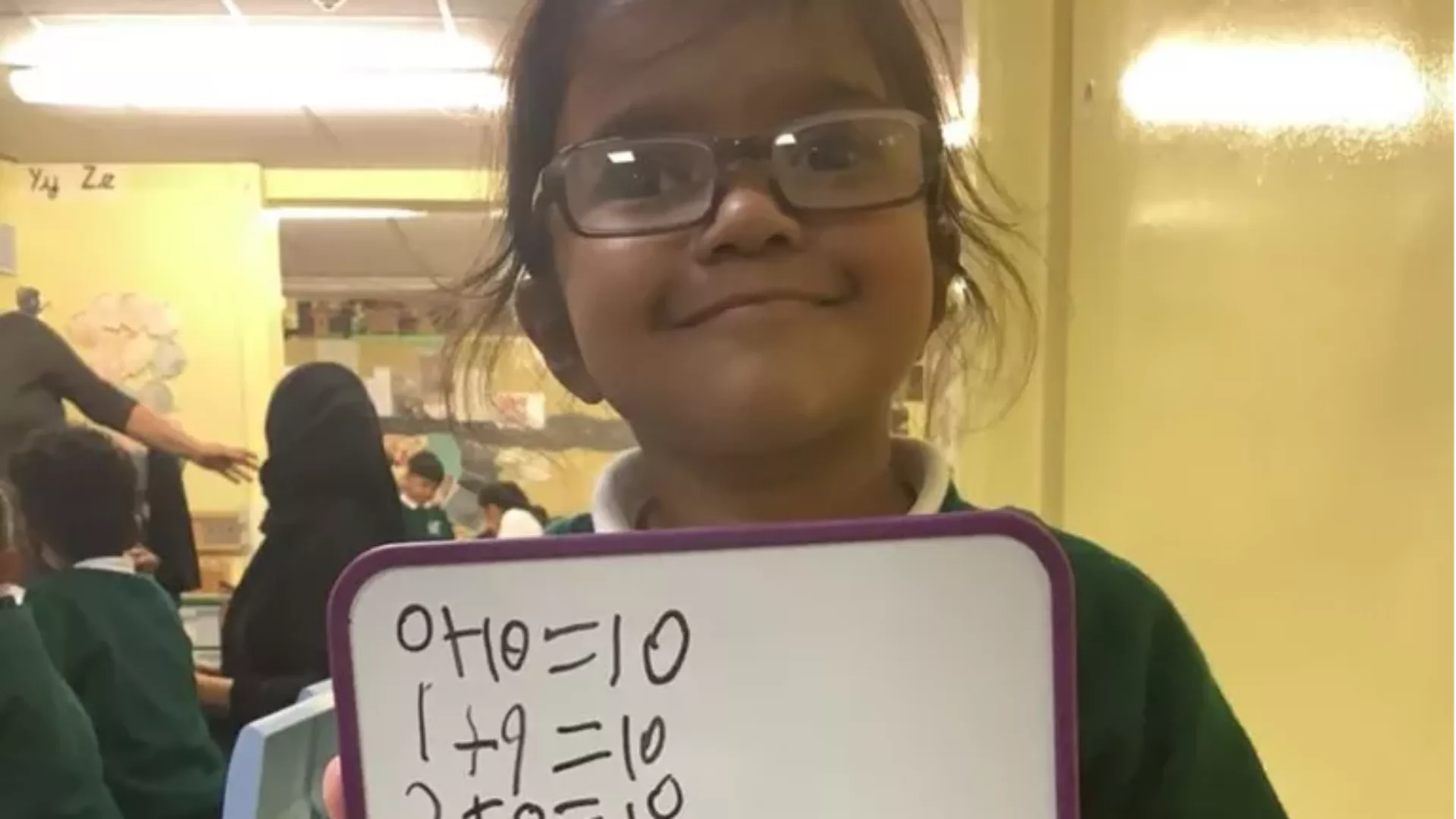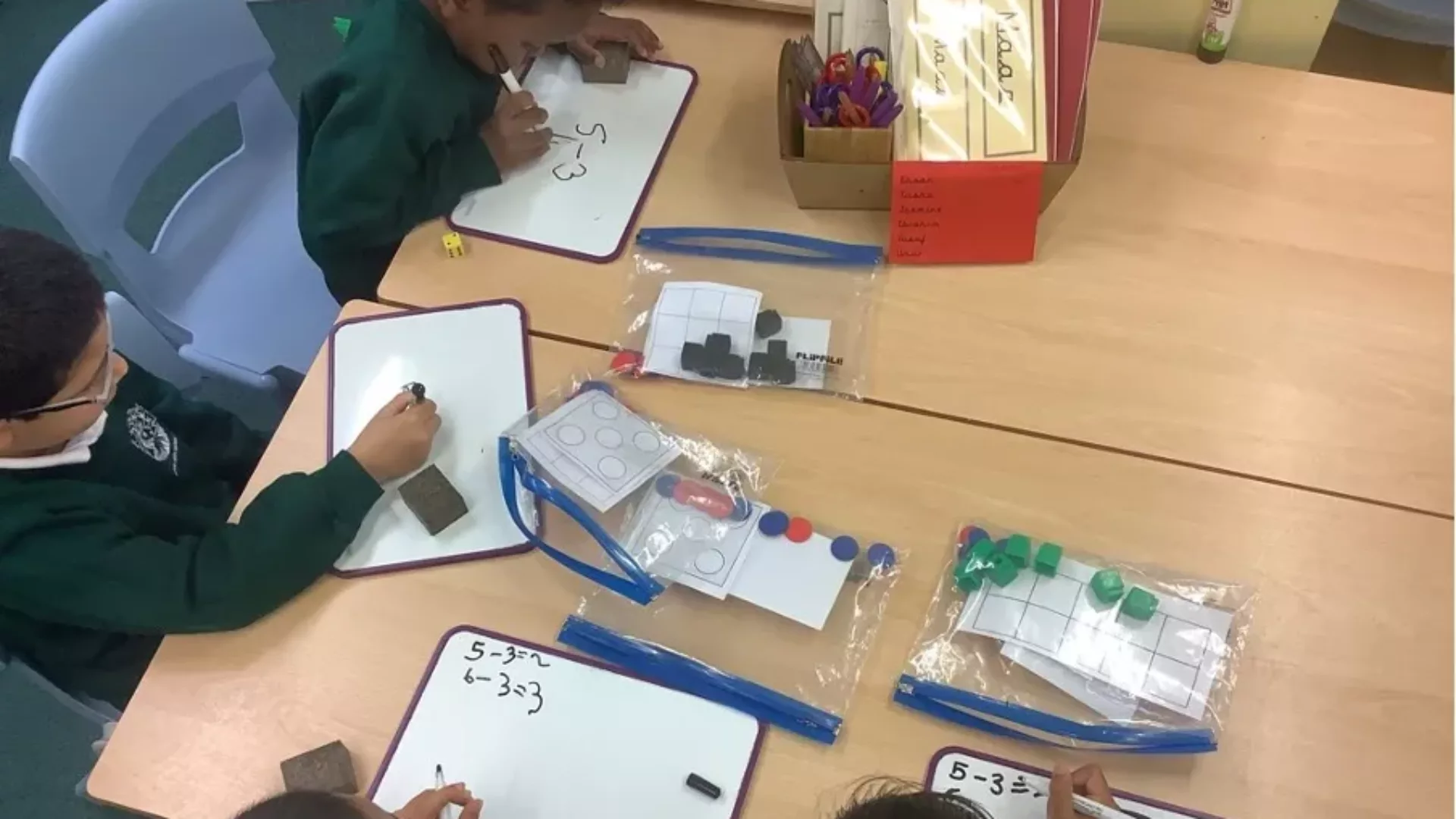Our Maths Curriculum
Our maths mastery curriculum has been designed through our participation with the Maths Hub. Our school specific long-term progression plan, based on government approved schemes aims to ensure children gain solid foundations with a focus on fluency and variation so that children build procedural fluency with semantic understanding and can apply these skills within different contexts.
Mathematical thinking has high profile in our lessons so our children are able to reason and problem solve using fluency and have a strong understanding of the mathematical concepts and how they need to be applied in varying ways.
Maths in the EYFS also follows the mastery approach. As well as being part of every day routines such as counting at register time, using language such as first and then, and simple problem solving situations such as ‘Are there enough?’, we have set maths moments times each day that are planned and progressive.
We begin in the nursery by looking at basic concepts such as comparison and categorisation. Number is also looked at through subitising and some early number studies including number songs and maths within stories.
We believe in keeping up to date with our pedagogy and in reception we have become part of the NCETM’s mastering number programme. This is developing the children’s number sense.
There is a mix of planned adult focus and in the moment learning, away from the carpet, where all of the staff are aware of the children current abilities and next steps.
In all year groups, language is at the heart of the maths learning, with the children being encouraged to use sentence starters/stems and verbalise their reasoning.
- Intent
- Implementation
- Impact
At Green Lane Infant School, our aim is to encourage all children’s love of maths through a well-balanced, progressive curriculum.
Starting in the nursery, this has been designed so that the children can become fluent in the fundamentals of mathematics, develop the necessary skills to reason and problem solve by applying their maths.
Teaching staff are expected to continue with their professional development and continue learning about the aspects of mastery for maths, in order to deliver coherent lessons showing variation and encourage mathematical thinking.
The mastery approach is designed so that ‘no child gets left behind’. The children move through the curriculum content at broadly the same pace, whilst stretching the higher attainers with problems that encourage deeper thinking and helping the less experienced to develop the basic skills that they need to succeed later in life.
Understanding that mistakes and misconception are key to learning staff use assessment for learning opportunities throughout each session in order to for children to make learn
All children are expected to succeed and make progress from their starting points. Our curriculum driver of communication is essential and the children are immersed in a maths vocabulary rich environment, with talking for learning being a key aspect to our lessons.
- Having been part of a national Maths Hub project we have created a bespoke maths curriculum, that matches our children’s needs. Our school specific long-term progression provides solid foundations. There is a focus on fluency with the five big ideas of mastery used in planning to ensure variation and mathematical thinking. We ensure that children can apply their understanding with different context.
- Our teachers are continually developing their subject knowledge. We have regular staff meetings where staff are encouraged to demonstrate their knowledge and support each other. Staff are signposted to organisations such as NCTEM and NRICH so that they can continue their own professional development. Members of staff are often part of Math Hub work groups.
- We help the children move through the stages of concrete, pictorial and abstract and have a range of high-quality resources to support this, and teach the children how to use diagrams and images that they can recreate. The children are encouraged to use either pictorial or concrete apparatus in order to help them to unpick the abstract. We have a focus on understanding problems and many of our sessions being with a problem to unpick. The children are expected to give reasons for their thoughts when giving verbal answers. To support this sentence stems are used in all year groups.
Where needed there is flexibility within our program. Specific teaching and programmes of study may be developed for individual children. However the vast majority of the children are able to participate in the main lessons.
Foundation Stage
Nursery
In the Nursery there are 3 sessions of maths moments weekly, following the yearly overview. One of these sessions focusses on either a number rhyme or maths story, explicitly teaching the maths within it.
The main focus for the overview is comparison, categorization, subitising and number 0-3.
In addition to this there is a weekly adult directed maths activity, that all children complete, where specific knowledge is revised and developed.
The adult directed activities are on a rota and includes the specific teaching of completing jigsaw puzzles and track games, as well as reinforcing the concepts taught in the math moments.
Reception
In Reception there are 4 session of maths moments weekly, following the mastering Number Programme. The children are mainly in mixed ability learning partners for this.
In addition to this there is a weekly adult directed maths activity, that all children complete, where specific knowledge is revised and developed.
The adult directed activities are on a rota and includes the specific teaching of completing jigsaw puzzles (moving to other spatial awareness activities) and track games, as well as reinforcing the concepts taught in the math moments.
Other aspects of Shape Space and Measure are taught in addition to this.
*In both year groups maths is an integral part of the continuous provision and is planned for according to gaps in knowledge and skill progression. The staff are encouraged to work with the children, in order to move their learning forward, including setting up provocations, correcting misconceptions and problem solving.
Key Stage One
In Key Stage One there are at least 4 full sessions of maths taught each week. The children are mainly in mixed ability learning partners for this, with no ability grouping other than the least able in the class.
In addition to this the Mastering Number programme is being taught.
General structure of a maths session in Key Stage 1.
- Review – not teaching
- New problem, thought for the session.
- Problem solving – children’s input eg paired talk
- Applying new learning – practical
- Guided practice, including marking and A4L
- Further teaching
- Independent work
- Summary
Throughout the year there are on-going assessment opportunities in order to gauge whether pupils have achieved the key learning objectives and meeting our expectations in Maths.
Teachers constantly assess the children’s understanding and correct misunderstandings.
We measure the impact of our curriculum through the following methods:
- Ongoing assessment with the use of A4L throughout the sessions.
- Formative assessing of children’s understanding periodically.
- Images and videos of children’s learning at home with the use of Seesaw.
- Interviewing the pupils about their learning (pupil voice).
- Summative assessment at the end of each Key Stage.
Observations show that children can use the stem sentences well and they their reasoning is improving. They are becoming more fluent in recalling facts.
Through discussion children talk enthusiastically about maths and say they they enjoy the lessons.
We report to parents annually stating the child’s current standard.
Current data shows an increase in children working at the expected level and gaps in learning are narrowing.
- Future Aspirations
- Books to Read Together
- Websites and Places to Visit
Maths really is the key to open countless career opportunities in later life, not to mention it also provides vital life skills for surviving and functioning in society.
Here is a link to a BBC Bitesize page where jobs for maths are listed. There might be some there that you hadn’t ever thought of before! From engineers to chefs, gaming to fantasy football!
Great books to read involving maths
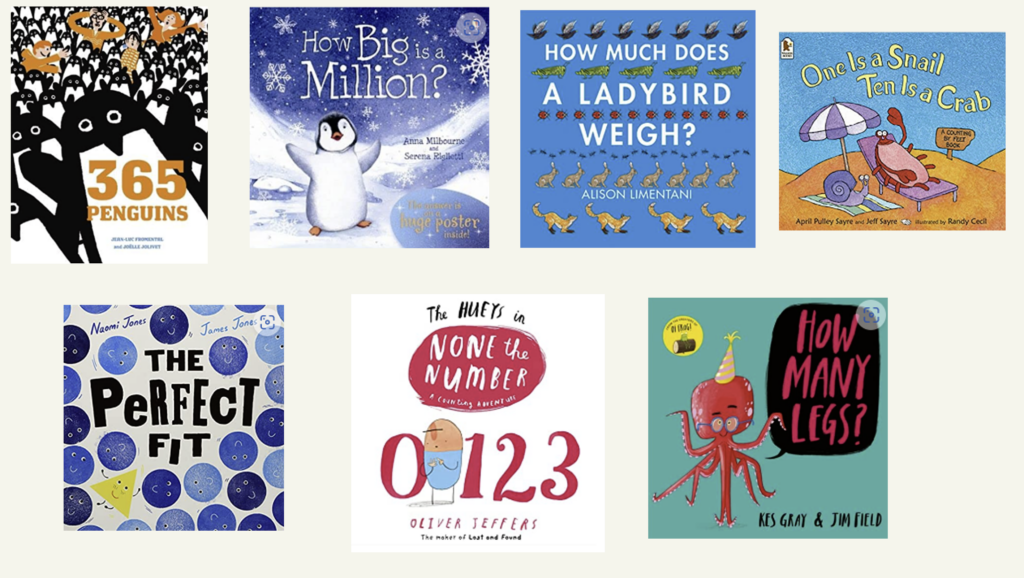
Local places to visit to explore maths in the real world
Leicester Market
Shops and supermarkets
The great outdoors – local parks and green spaces to practise subitising!
Useful websites for parents
Oxford Owl for Home: help your child learn at home – Oxford Owl
CPD Training | Free maths resources | White Rose Maths – parent/carer resources
Karen Wilding eymaths – YouTube
Maths lessons for Key Stage 1 students – Oak National Academy (thenational.academy)
